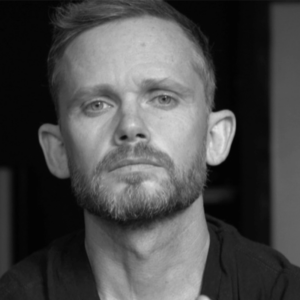Article Overview:
Partial Hospitalization Programs (PHPs) provide intensive outpatient addiction treatment, combining structure and flexibility without overnight stays.
Tree House Recovery in Costa Mesa offers a specialized PHP for young men, integrating evidence-based therapies, holistic healing, and life skills development.

There’s no universal pathway to addiction recovery, and a PHP (partial hospitalization program) offers many people the perfect balance between structure and flexibility—PHP rehab offers intensive care without requiring an overnight stay. Whether you’re stepping down from inpatient care or seeking a comprehensive alternative to residential treatment, PHP can help set a stable foundation for sustained recovery.
This guide to PHP drug treatment explores issues like what is PHP treatment, who it is suitable for, and how to connect with an effective California PHP drug rehab program.
A partial hospitalization program is the most intensive form of outpatient addiction treatment, bridging the gap between residential rehab and less-structured outpatient programs.
Unlike inpatient programs, where people remain at a facility for 30 to 90 days, PHPs allow individuals to return home or to a sober living community after daily treatment. This model provides flexibility while still delivering a high level of care, making it a popular choice for those who need structure and support without 24/7 supervision.
At its core, a PHP is intended to address the physical and psychological components of addiction. Through evidence-based therapies, participants focus on unpacking the root causes of their substance use while building healthier coping strategies. Therapies may include, individual counseling, group therapy, family therapy, and talk therapies like CBT (cognitive behavioral therapy).
PHPs typically operate 5 to 7 days weekly, with sessions lasting 6 to 8 hours each day. This enables people to immerse themselves in a supportive therapeutic environment while gradually reintegrating into daily life.
While partial hospitalization programs offer a high level of care, they are not suitable for everyone. PHP participants must meet specific criteria to ensure a good fit.
Uppermost among partial hospitalization program requirements is stability—individuals must be physically and medically stable enough not to need constant supervision. This often means completing detox or inpatient treatment beforehand to address withdrawal symptoms or medical complications.
Beyond this, PHP candidates typically need a sober and supportive living environment because they return home between therapy sessions. A toxic home environment can jeopardize progress, so individuals without stable housing may benefit from combining PHP with a transitional living arrangement in a sober community.
Other requirements include the ability to travel reliably to the treatment center, a willingness to participate actively in therapy, and a commitment to addressing co-occurring mental health issues like trauma, depression, or anxiety.
Every PHP is different, but they share some commonalities:
Addiction treatment follows a continuum of care with different levels of intensity. PHPs are considered level 2.5 care, falling between traditional outpatient and inpatient rehab.
PHPs, then, provide a middle ground for those who need structured care but don’t require continuous supervision.
Are you or a loved one seeking addiction treatment? Meet our compassionate staff, explore our private facility, and learn about our comprehensive programs in a welcoming environment. Schedule your visit today.

Set up a tour today!

PHPs are immersive programs that provide participants with various therapeutic and educational services. Treatment usually begins with a thorough assessment conducted by clinical professionals. This evaluation helps create an individualized treatment plan tailored to each person’s needs and recovery goals. Once admitted, individuals can expect a daily schedule packed with activities designed to address both addiction and overall well-being.
A typical day in a PHP might include individual therapy sessions where participants work one-on-one with a counselor to explore the underlying causes of their addictions. Group sessions provide a sense of community and help individuals develop communication and interpersonal skills. Psychoeducational workshops teach people about the science of addiction, relapse prevention strategies, and coping mechanisms for managing triggers and cravings. Many programs also incorporate holistic therapies, such as yoga, mindfulness, meditation, or art therapy, to support emotional healing. Medical care and medication management are available for those needing ongoing physical or mental health support.
PHP drug rehab is especially effective for those battling substance use disorders because it offers a comprehensive approach to recovery. Addictions impact all aspects of a person’s life—physical, mental, emotional, and social—and PHPs address all these areas. By integrating therapy, education, and peer support, PHPs help people develop the skills they need to get sober and stay sober long-term.
Relapse prevention in partial hospitalization programs includes learning to identify triggers, develop healthy coping mechanisms, and build a robust support network. Participants are also guided in creating sustainable daily routines to avoid stress and boredom—both common relapse triggers.
For those dealing with co-occurring disorders. Like PTSD (post-traumatic stress disorder), PHPs offer integrated dual diagnosis treatment, addressing both addictions and mental health conditions simultaneously. This approach improves the likelihood of lasting recovery and equips people with the tools to rebuild their lives.
Not everyone dealing with drug or alcohol addiction wants or needs inpatient rehab, and not everyone is ready for standard outpatient care. PHPs are ideal for those who:
If you’re unsure whether a PHP is right for you, a medical professional can help determine the optimum level of care based on your history, symptoms, and support system.
PHP treatment blends medical and therapeutic services intended to address the physical, emotional, and psychological aspects of addiction. While partial hospitalization programs vary, most include the following elements.
Finding the right PHP in California may seem challenging, given the many options available. Here’s how to streamline your decision:
By carefully evaluating these factors, you can find a PHP in California that aligns with your needs and recovery goals, setting the stage for a successful and fulfilling treatment experience.
At Tree House Recovery, our partial hospitalization program in California is designed for young men seeking a comprehensive and highly structured approach to addiction recovery. Our PHP focuses on holistic healing and uses a biopsychosocial model to address the physical, emotional, and social components of recovery. With a blend of evidence-based therapies, experiential activities, and community-building opportunities, we offer a supportive environment where young men can work toward enduring recovery from drug addiction or alcoholism.
Here’s what to expect from our PHP:
If you’re ready to kickstart your recovery without neglecting your everyday commitments or leaving home for a month or more, choose our PHP in California by calling (855) 202-2138.
If you are trying to determine what level of care you need, understanding the difference between inpatient and PHP is essential. The biggest differences between detox/residential and PHP are purpose, setting, duration, and supervision. Below is how they generally differ:
Detox/residential are typically bundled together and are primarily focused on stabilizing patients who have a high risk of relapse during the first stages of recovery. Detox is focused on managing withdrawal symptoms under 24 hour medical supervision. Residential care usually follows and provides intensive therapy in a highly supervised 24 hour live-in environment. while patients go through the most intense phase of post acute withdrawal syndrome (PAWS).
Purpose (PHP):
The main purpose of PHP is to provide patients with the skills, education, and knowledge needed to maintain sobriety in the long term. It is for patients who need intensive therapy and support but are stable enough not to require 24-hour supervision. Symptoms of PAWS are typically less intense during this stage, which can give clients a higher level of mental clarity. This mental clarity can enhance patients’ ability to focus and retain information during one-on-one counseling and other forms of intensive therapeutics at this care level.
2. Setting:
Detox and residential care are inpatient levels of care that take place in facilities that provide supervised live-in care 24/7. These live-in facilities are meant to provide a safe environment that physically separates patients from potential relapse opportunities during the early stages of recovery.
PHP is outpatient care and provides addiction treatment during the day at a facility 5/7 days a week and 6 to 8 hours per day. Patients at this level of care are stable enough not to need 24-hour supervision, allowing them to return home or a sober living environment at night. This level of care gives patients more freedom and allows them to practice integrating new skills into their daily lives.
Duration (Detox/Residential):
Detox can last from a few days to a few weeks. Residential treatment typically lasts weeks but can last even longer, depending on severity. Detox and residential treatment are typically offered at the same facility, and the two levels of care can be bundled into 30-day treatment episodes.
Partial Hospitalization Programs typically last three months or more. This gives patients the necessary time to recover and build a strong foundation for a sustainable recovery. However, program durations may vary depending on the severity and needs of the individual.
4. Supervision:
Detox & Residential both have a very high level of supervision, with 24/7 monitoring. The main goal here is to make sure patient’s are safe as they go through acute withdrawal during detox and post-acute withdrawal during residential.
PHP has dose not have round-the-clock supervision, but it is moderate to high. Patients at this level of care are stable enough to recieve intensive therapy and support during the day but return to their homes or sober livings in the evening.
